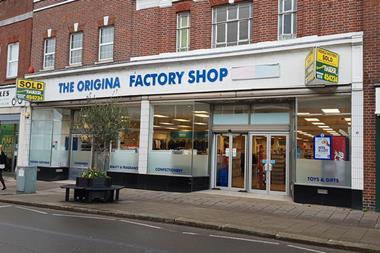FRANCE: Carrefour has unveiled a budget range of own-label products, which will launch next month in French stores to compete for consumers hit by the credit crunch. Carrefour Discount features 400 everyday products such as orange juice, mince and fruit & veg.
"The consumer today has a real spending power problem," said executive director Gilles Petit. The group's first-quarter sales, published this week, show like-for-like sales at its French stores down 2.5%.
GERMANY: Monsanto, the world's biggest seed business, has started legal proceedings against Germany. Although the EU had approved the company's Mon 810 maize variety, the German Government banned its sale and cultivation.
A Monsanto spokesman was reported to have said its action was an "arbitrary ban" that violated EU rules. He said EU member states can invoke a clause against an approved plant but such a move required new scientific evidence, and none existed to support the ban. "They are in conflict with EU rules," he said.
USA: Wal-Mart's former president and chief executive, David Glass, has chosen not to stand for re-election to the company's board of directors at its annual shareholders' meeting on 5 June. He joined Wal-Mart as executive vice president of finance in 1976, was elected to its board in 1977 and named president in 1984. He succeeded the company's founder Sam Walton as president and CEO in 1988, where he remained until his retirement in 2000.
"He established a new foundation for Wal-Mart's growth," said chairman of the Wal-Mart board Rob Walton. "My dad considered him one of the finest retail talents he had ever met."
NEW ZEALAND: Two grocery retailers have become the first to charge for plastic carrier bags, to help cut the one billion bags used each year. Foodstuffs will charge 5c per bag and The Warehouse 10c.
"We're hoping to reduce circulation by 20 million bags a year," said The Warehouse chief executive Ian Morrice. Campaign group GetReal said it hoped supermarket chain Progressive would soon follow suit.
"The consumer today has a real spending power problem," said executive director Gilles Petit. The group's first-quarter sales, published this week, show like-for-like sales at its French stores down 2.5%.
GERMANY: Monsanto, the world's biggest seed business, has started legal proceedings against Germany. Although the EU had approved the company's Mon 810 maize variety, the German Government banned its sale and cultivation.
A Monsanto spokesman was reported to have said its action was an "arbitrary ban" that violated EU rules. He said EU member states can invoke a clause against an approved plant but such a move required new scientific evidence, and none existed to support the ban. "They are in conflict with EU rules," he said.
USA: Wal-Mart's former president and chief executive, David Glass, has chosen not to stand for re-election to the company's board of directors at its annual shareholders' meeting on 5 June. He joined Wal-Mart as executive vice president of finance in 1976, was elected to its board in 1977 and named president in 1984. He succeeded the company's founder Sam Walton as president and CEO in 1988, where he remained until his retirement in 2000.
"He established a new foundation for Wal-Mart's growth," said chairman of the Wal-Mart board Rob Walton. "My dad considered him one of the finest retail talents he had ever met."
NEW ZEALAND: Two grocery retailers have become the first to charge for plastic carrier bags, to help cut the one billion bags used each year. Foodstuffs will charge 5c per bag and The Warehouse 10c.
"We're hoping to reduce circulation by 20 million bags a year," said The Warehouse chief executive Ian Morrice. Campaign group GetReal said it hoped supermarket chain Progressive would soon follow suit.













No comments yet